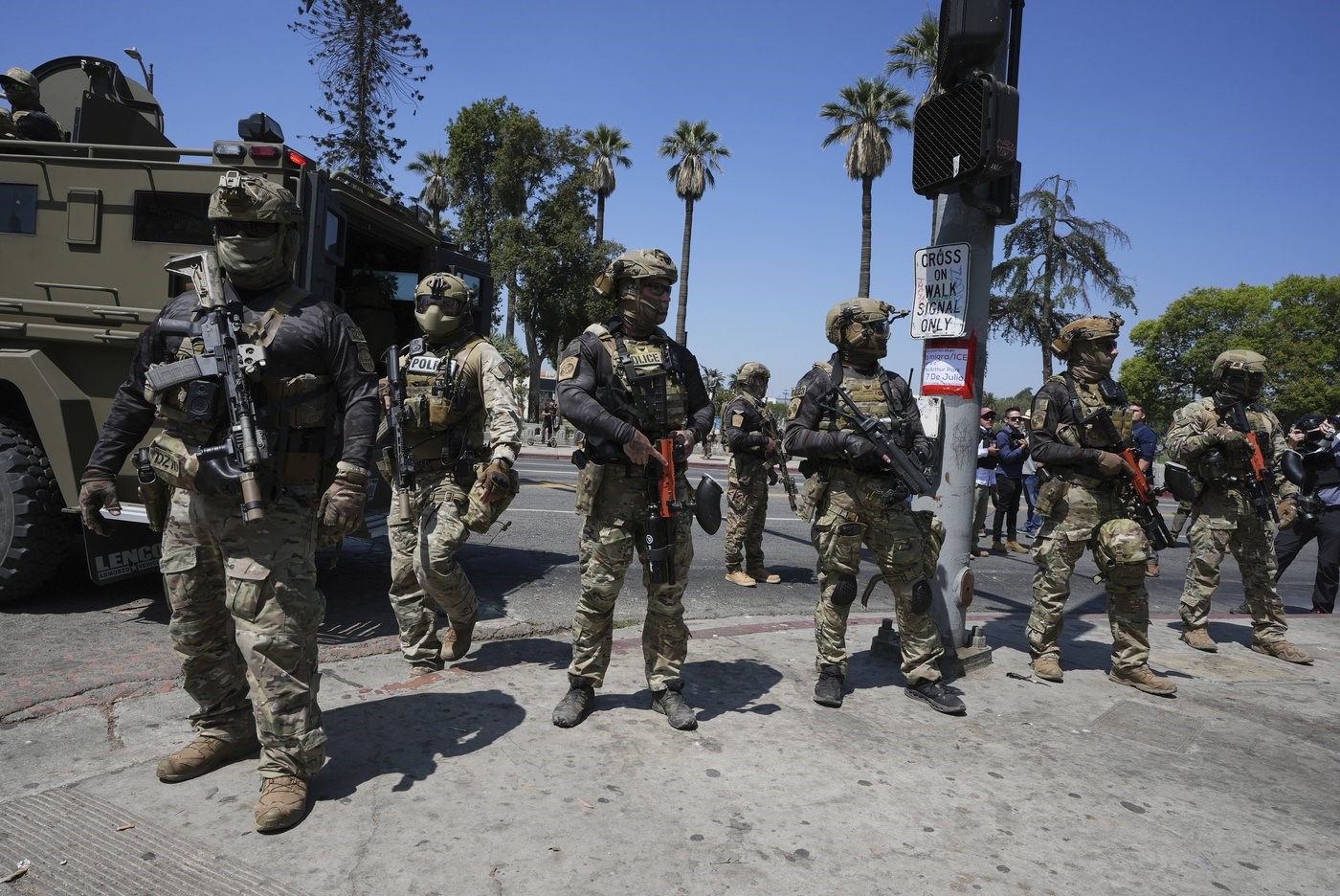
FILE - Federal agents stage at MacArthur Park, July 7, 2025, in Los Angeles. (AP Photo/Damian Dovarganes, File)
September 02, 2025 - 10:33 AM
The Posse Comitatus Act is a nearly 150-year-old federal law that limits the U.S. military’s role in enforcing domestic laws. At its core, experts say the law reflects America’s long-standing belief that law enforcement should remain in civilian hands, separate from military power.
President Donald Trump has tested the law's limits in the first few months of his second term, as he expands the footprint of the U.S. military on domestic soil.
Here's what to know about the law.
Posse Comitatus Act stops military from enforcing US law
The criminal statute prohibits military enforcement of domestic law. It also prevents the military from investigating local crimes, overriding local law enforcement or compelling certain behavior.
There are key exceptions. Congress can vote to suspend the act, or the president can order it suspended in defense of the Constitution. The Insurrection Act of 1807 allows the president to deploy troops during invasions, rebellions or when local authorities can’t maintain order.
National Guard members are under state authority and commanded by governors, so they're generally exempt. However, the Posse Comitatus Act applies to National Guard forces when they're “federalized,” meaning the president puts them under his control. That's what Trump did in California over the governor's objections.
The military is allowed to share intelligence and certain resources if there's an overlap with civilian law enforcement jurisdiction, according to the Library of Congress. There’s also an exception for the U.S. Coast Guard, which has some law enforcement responsibilities.
Law was enacted after the Reconstruction era
The law was enacted in 1878 following the post-Civil War era known as Reconstruction. At that time, segregationist lawmakers didn't want the U.S. military from blocking Jim Crow laws that imposed racial segregation.
But the spirit of the law has roots going all the way back to the Revolutionary War, when the nation's founders were scarred by the British monarchy’s absolute military control, said William C. Banks, a professor at the Syracuse University College of Law.
“We have a tradition in the United States — which is more a norm than a law — that we want law enforcement to be conducted by civilians, not the military,” Banks said.
Courts have rarely interpreted the Posse Comitatus Act, leaving much of its scope shaped by executive branch policy and military regulations rather than judicial precedent.
Steve Vladeck, a law professor at Georgetown University, notes that this lack of legal rulings makes the law unusual.
“There is no authoritative precedent on exactly where these lines are, and so that’s why over the years the military’s own interpretation has been so important,” Vladeck said.
New tests for the law
A federal judge has ruled that the Trump administration violated federal law by sending troops to accompany federal agents on immigration raids in Los Angeles this summer. The ruling does not require the remaining troops to withdraw.
Trump administration attorneys argued the law doesn’t apply because the troops were protecting federal officers, not enforcing laws.
Trump also sent 800 troops to Washington D.C., saying without substantiation that they were needed to reduce crime in the “lawless” city.
In Washington, a federal district, the president is already in charge of the National Guard and can legally deploy troops for 30 days without congressional approval.
Trump has since discussed sending the National Guard to other Democratic-led cities like Chicago, Baltimore and New York.
___
Riddle is a corps member for The Associated Press/Report for America Statehouse News Initiative. Report for America is a nonprofit national service program that places journalists in local newsrooms to report on undercovered issues.
News from © The Associated Press, 2025